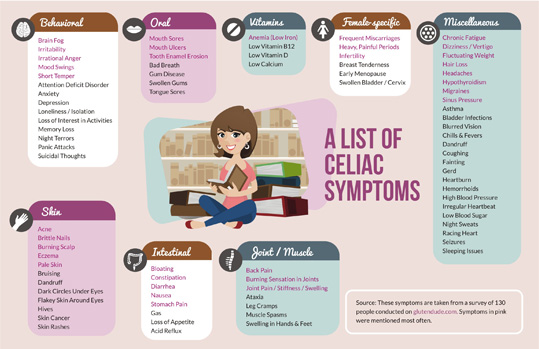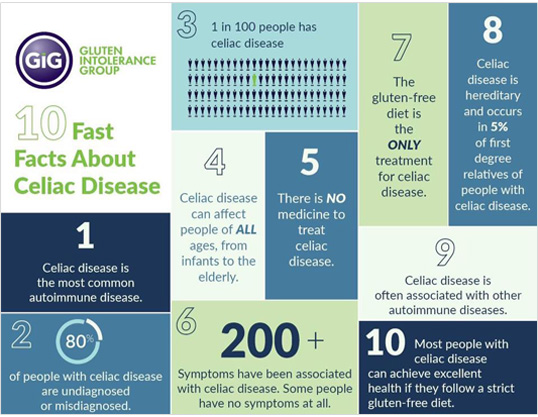Diagnosis
The number of ways Celiac Disease can affect patients, combined with a lack of training in medical schools, contributes to the poor diagnosis rate in India and perhaps the world. Currently, it is estimated that 80% of the Celiac disease population remains undiagnosed. First-degree relatives (parents, siblings and children) whether or not experiencing symptoms, should also be screened, since there is a 1 in 10 risk of developing Celiac Disease.
Why get screened
Celiac Disease is a lifelong autoimmune disorder that affects multiple parts of your body, which can lead to other serious illnesses whether or not you are on a gluten free diet.
Blood Test
There are several blood tests available that screen for celiac disease antibodies, but the most commonly used is called TTG – IgA test. For this test to work, you should be on a diet which contains gluten. If blood tests suggest celiac disease, your physician will recommend a biopsy of your small intestine to confirm the diagnosis.
Endoscopic Biopsy
This procedure is performed by a gastroenterologist and is an outpatient procedure. A biopsy is taken of the small intestine, which is then analyzed to see if there is any damage consistent with celiac disease. The diagnosis may be confirmed when improvement is seen while on a gluten-free diet.
Celiac Disease: Treatment & Follow-up

 Children
Children ADULTS
ADULTS